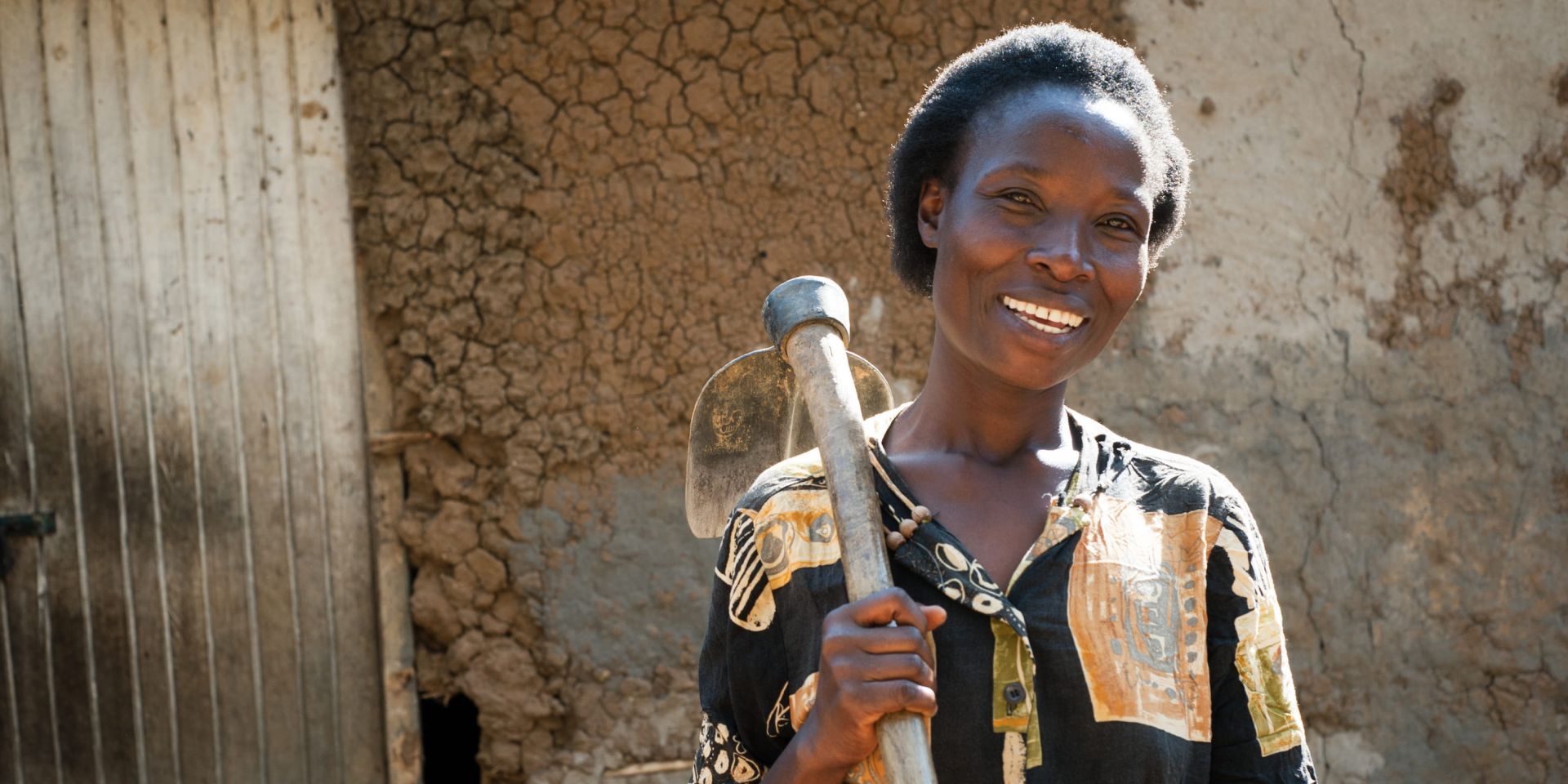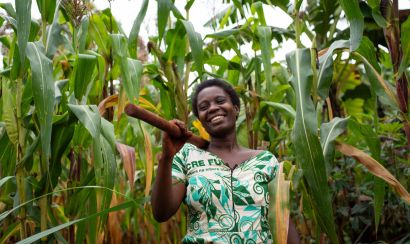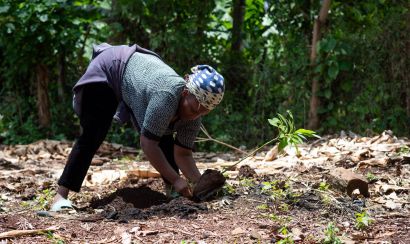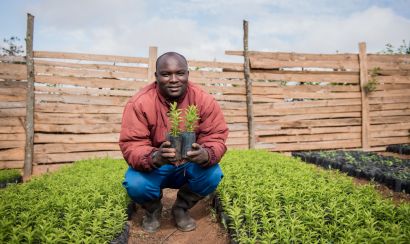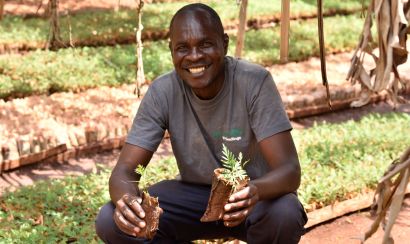The Case For Farming Insurance To Help Smallholders Build Climate Resilience
Few professions are as impacted by the climate crisis than farming. As global temperatures rise and rain patterns shift, farmers face an increase in challenges such as severe drought, floods, pest and disease infestations, and dwindling groundwater supplies. This is particularly concerning for smallholders who depend wholly on rain-fed agriculture.
While climate-smart agriculture can help farmers build long-term resilience to climate change, it can’t fully prevent extreme weather events from causing crop devastation. Farming insurance is an emerging tool in climate risk management that can help ensure smallholders are able to plant again the following season even if crops fail in the current one, and encourage them to take risks to invest more in their farms even when the climate is so unpredictable. Unfortunately, millions of smallholders lack this safety net, making them highly vulnerable.
One Acre Fund is one of the largest distributors of farm insurance on behalf of smallholders in Africa. Our insurance offering currently has three strands that help provide a safety-net to farmers at different stages of the season:
- Re-supplying planting materials
- Loan reductions and forgiveness
- Yield-based insurance
Re-supplying planting materials
This year, Southern Malawi - an area we work in - experienced massive flooding caused by Cyclone Ana, followed by an extreme drought, leading to significant yield reductions for smallholders.
“In 2022, my crops were affected by drought. The weather changes every year, but last year was more intense than usual. We saw heavy winds, and it was too hot,” — Handson John, Malawian farmer.
One way we are looking at insurance is to supply farmers with additional planting material when germination fails due to bad weather or other related reasons. For Handson and other smallholders like him, receiving additional seeds when initial germination failed meant they could salvage the season to an extent. It meant late (re)planting - which is far from ideal - but without the additional seed, farmers would have been a lot worse off.
Rose January, another Malawian farmer, says insurance helped her salvage her harvest this season:
“If we hadn’t received support, we’d have even less than we do now, particularly when I compare myself to farmers who don’t farm with One Acre Fund, who didn’t get additional seed to replant.”
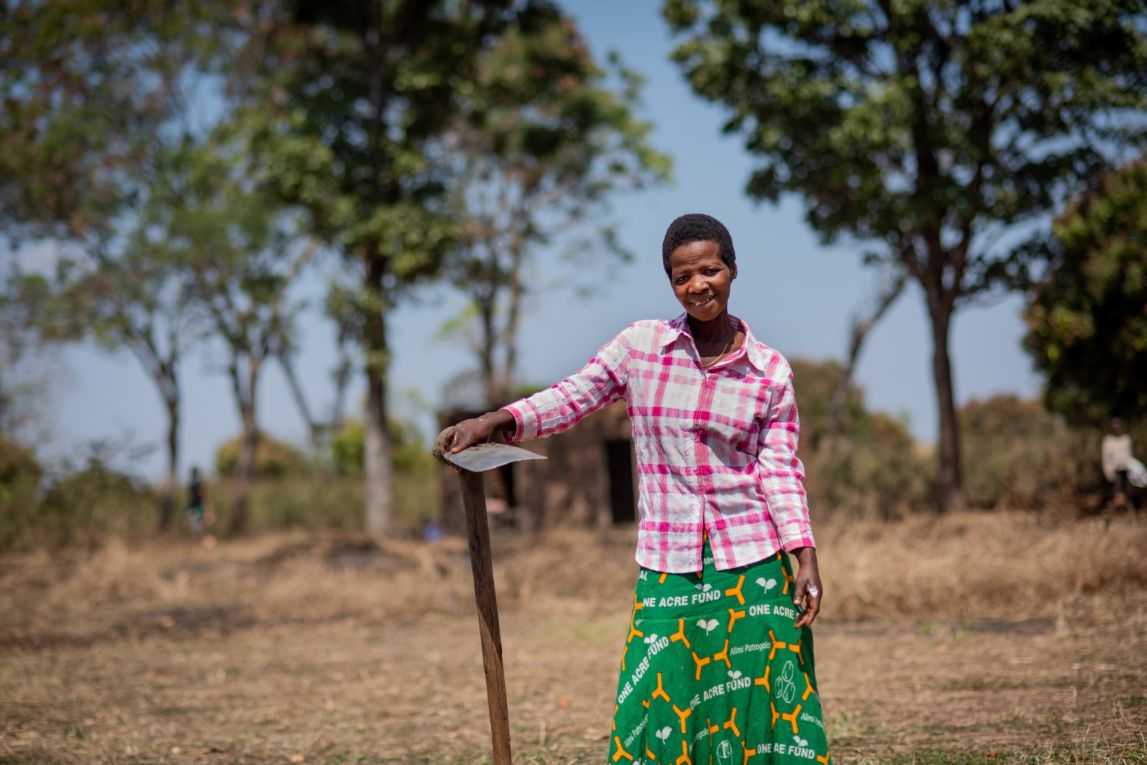
Loan reductions/forgiveness
When extreme weather events occur further into the season and replanting is not an option, we are trialing severe weather-event insurance in the form of loan reducations/forgiveness to give farmers a boost when their main income source is impacted.
For example, after Cyclone Ana devastated the farms of more than 200,000 farmers in Mulanje, Malawi, we provided financial assistance to the more than 4,000 farmers who were enrolled in our program.
“The insurance was impactful because my field had been completely washed away. If the loan wasn’t reduced, I wouldn’t have finished paying it and wouldn't be able to enroll next year,” says farmer Esther Masambuka.
Yield-based insurance
Yield-based insurance, which looks at harvests at the end of the season in a given geographic region against historical yield data, is another way of buffering farmers against climate change. In recent years, we have tested issuing this through loan forgiveness and cash payouts.
Holistic insurance programs like the three we’ve outlined here are a crucial part of how we as an organization are approaching building the climate resilience of the farmers we serve. Insurance packages like this that consider the specific farmer context can make the difference between whether or not a farmer can still farm again the following season after a major weather event, or other climate change-induced challenges.
“After I saw others have crop failure, I felt I should get insurance last season. It was my first time receiving it. I will retake it because the weather is changing” — Petro Piyo Nyoloweru, Malawian farmer.
Promote access and scaling
The weather events in Malawi this year are just one example that demonstrate the connection between providing crop insurance and building climate resilience for smallholders. One Acre Fund believes that scaling access to insurance is a reliable - and necessary - risk mitigation tool for helping smallholder farmers cope with climate change-induced crop failure, and other unpredictable weather events.
It’s also a critical component in increasing farmers’ confidence to invest in new climate-smart agricultural approaches and crop diversification - both things that are central to building their long-term climate resilience.
Climate change is a food security issue and the growing impact of climate change underlines the urgency of securing funding for farming insurance for smallholders. Discover more about what we're doing to change this >>
